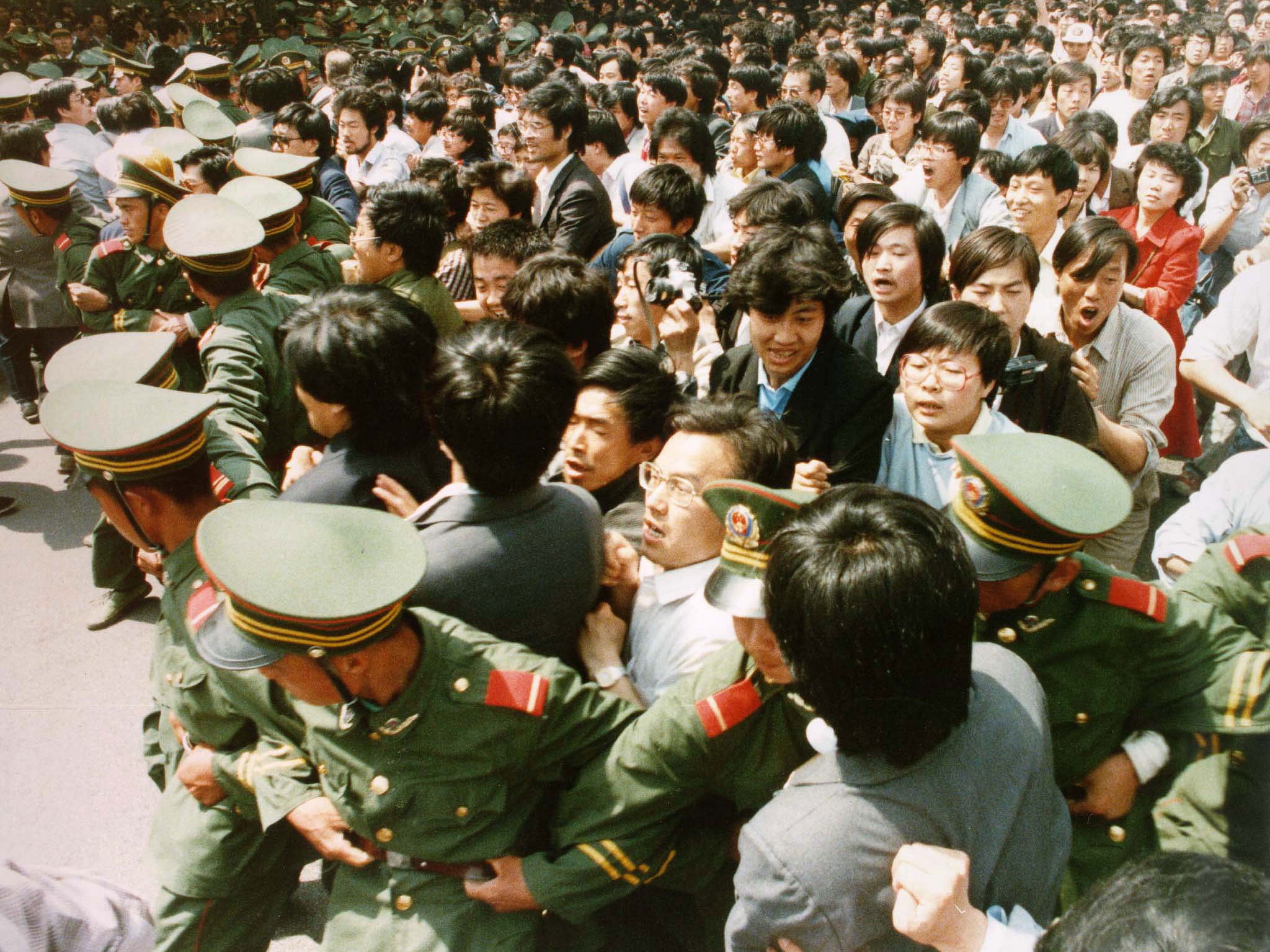Tiananmen Square anniversary: Remembering those who were massacred by the Chinese government is just the beginning
With their memories intact, we should strive towards building a better, freer country

As I entered the city of Beijing last week, my stomach turned. I have never been to the Chinese capital before, but its surroundings paint an all too familiar a picture. This is the Beijing I recognise through documentaries and history books. And there is the Tiananmen Square of 1989, where the People’s Liberation Army indiscriminately murdered students who protested for democracy during that feverish season.
I visited Beijing as part of an overseas Chinese delegation, invited by the Government to exchange ideas over how best to support Chinese people who are overseas. In truth, we all know there is a wider agenda at play: the narrative of "the great rejuvenation of the Chinese nation" or "the China Dream" – a phrase repeated at any given opportunity during the week-long trip, as we are shown around China’s landmarks, both new and old.
This "rejuvenation" is President Xi JinPing’s flagship policy goal. It prioritises economic development and national strength over all other concerns, including human rights. China’s only Nobel Peace Prize Laureate remains imprisoned, as rights activists are accused of overthrowing the state. The students of Tiananmen have been pushed into the trashcan of history, and June 4 (known as "6.4" in Chinese) is spun as an insignificant event in the shadow of the great achievements of the Communist Party.
Almost 2,000 kilometres away from Beijing, another battle for history and memory commences. Over half a year since the beginning of the Umbrella Revolution, Hong Kong, the only place in China where Tiananmen vigils can legally take place, is split over how best to commemorate the Tiananmen massacre.
The younger generation of activists, some of whom refuse to be defined as Chinese, reject their predecessor’s alignment of Hong Kong’s democratic movement with China’s, and instead see June 4 as a caution of the Chinese government’s brutality, rather than a common struggle with their mainland counterparts.
But back in mainland China, the freedom to debate how or if we should at all remember June 4 is an extravagance. In recent days, messages started flowing in on my WeChat (the main social media app used in China), warning people that the internet police and Baidu (China’s largest search engine) are teaming up. They cautioned users not to share any satirical images to avoid sanctions against individual accounts or groups.
This is the Big Brother state, only cooler and richer than George Orwell could ever envisage. And people actually believe in it. Across China, citizens are content with the Communist Party and its legitimacy. China’s economic growth lifted millions out of poverty and put pride back in the nation’s soul. And as the tides of nationalism sweep across history, the memory of Tiananmen is slowly fading away. Soon it will be wiped out of existence altogether.
That is why, 26 years on, it is all the more important that we learn the lesson of history, and do our best to fulfil the aims of those who sacrificed their lives in Tiananmen Square. This anniversary isn't just an opportunity to reminisce on the past, but a chance to work towards a freer country, where people can fill their stomachs as well as speak their minds, with no cruel choice presented between the two.
Join our commenting forum
Join thought-provoking conversations, follow other Independent readers and see their replies
Comments
Bookmark popover
Removed from bookmarks